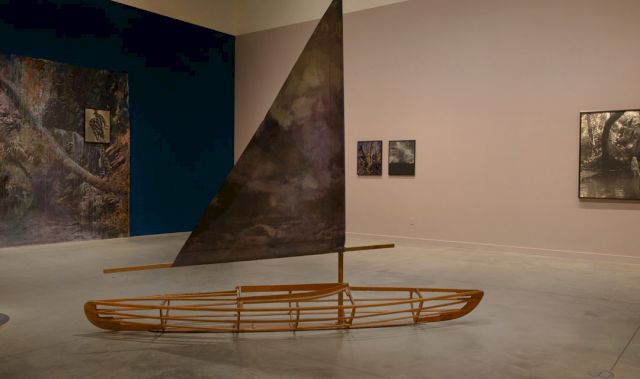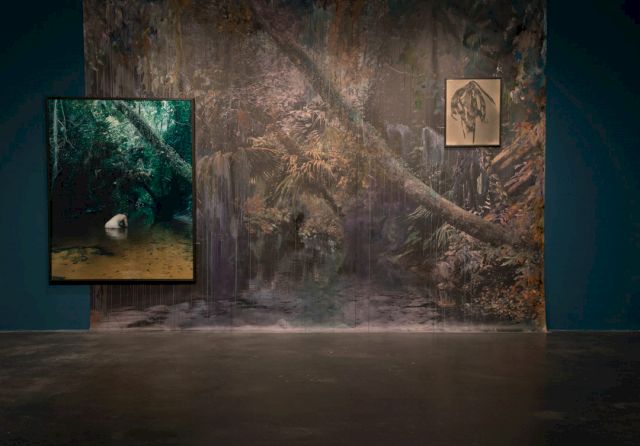Independent Collectors
Transformer Station
Fred and Laura Ruth Bidwell’s transformation of an electrical power station in Cleveland

The legacy of Cleveland as one of the great industrial cities of the United States can be felt in the vast interior of the Transformer Station. The building once functioned, quite literally, as a power transformer station for the Cleveland Railway Company, which, in the early part of the twentieth century, provided public transport for the population of one of the country’s most dynamic urban economies.
In the wake of the Great Depression, and the controversial sell-off of the city’s public transportation system, the building that would become the Transformer Station was reinvented as an art foundry. The space in its current manifestation weaves together both of these strands of its history, maintaining the cavernous scale of its industrial life—the current space, including the elegant modern addition designed by Process Creative Studio, offers more than 3,000 square feet of space—along with a dynamic, forward-looking schedule of exhibitions that evokes the creative role it played in the city’s aesthetic life in the later decades of the twentieth century.
At the heart of the Transformer Station’s story is the Bidwell Foundation, a charitable organisation created by Fred and Laura Ruth Bidwell, to support artists and create exhibitions throughout Northern Ohio and elsewhere. The Bidwells are particularly well known as the creators of the Bidwell Collection which brings together works by living artists at various stages in their career, attempting to trace the ways in which Twenty-First Century photography is evolving. A sizeable proportion of the Transformer Station’s schedule grows out from the core provided by the Bidwell Collection and Foundation as well as a rotating programme of guest artists. Recently, the space hosted Rainer Prohaska’s “Parking Violation”, a fascinating expression of a species of urban surrealism in which the car park of the Transformer Station displayed five overturned vehicles neatly positioned between the lines of gallery parking spaces. An incongruous sight among the residential streets that surround the Transformer Station, Prohaska’s work eloquently addressed the industrial history of the city and the complex relationship both Cleveland itself and the Transformer Station building have with the automobile. Most recently the artist, Esther Teichmann, exhibited a multi-media installation entitled, “Heavy The Sea“, in the space, a sprawling work of profound beauty as well as profound inquisitiveness. Critics, including Michael Gill, have drawn parallels between “Heavy The Sea” and opera as the archetypal “gesamtkunstwerk”, or “total art work”, bringing together disparate art forms to create a distinct and irreducible whole. Perhaps this musical reference is fitting given Cleveland’s long history as a centre of classical and popular music, and the Transformer Station’s commitment to diverse and integrative approaches to art. The current exhibition, “Them!”, centres on the ways in which music and visual culture interact. The exhibition presents photography and other works by a number practicing musicians including Melissa auf der Maur, late of the 1990s band, Hole, and a long solo career, as well as the innovative guitarist of the Yeah Yeah Yeahs, Nick Zinner, who has pursued a parallel practice as a photographer. The Transformer Station may no longer literally bring electrical power to the city of Cleveland, but in its new incarnation it continues to mediate the flow of powerful and diverse cultural currents.
William Kherbek is the writer of the novel “Ecology of Secrets” (2013, Arcadia Missa) and “UltraLife” (2016, Arcadia Missa). His art journalism has appeared in a number of publications in the UK, US, Germany, Switzerland and Romania.
For more information visit Transformer Station.




All images courtesy of the Transformer Station, Cleveland.